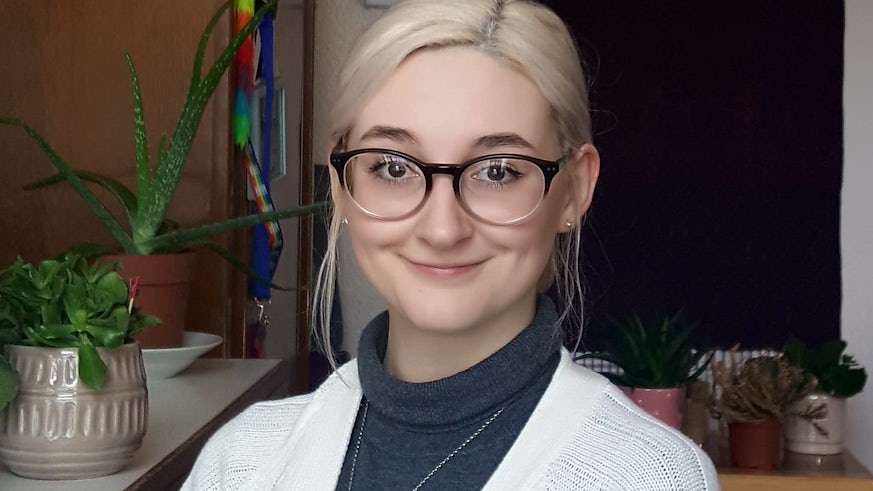Cardiff University student gets first author on research paper – before she’s even finished her first degree
4 February 2021

Many scientists spend years working towards their dream of becoming the first author on a scientific research paper.
But for 21-year-old Amy Murray that dream is already a reality – all before she has even finished her first degree.
It’s a rare achievement and one that Amy, a Cardiff University neuroscience undergraduate student, still can’t quite believe.
“When my supervisors said we should submit the paper for journal publication I didn’t really know how unusual it was for a student to be a first author – I just thought ‘Well, this will be pretty cool and it’ll be good for my CV’,” says final-year student Amy.
“When I got the email to say it would be published, I danced around the room and called my mum. The first thing she said was ‘my daughter’s going to be famous’ – and I had to say ‘No mum, calm down, I’m not going to be famous quite yet.”
The paper, published in the journal Neurobiology of Ageing, explores the links between the genetic risk of developing Alzheimer’s disease and the effect on the size of key brain structures.
It adds to growing research into the genetic basis of the progressive disorder which it is hoped will identify areas of the brain to target before the disease takes hold.
Amy first became interested in science at primary school, growing up in Northern Ireland.
She recalls learning about the body’s many muscles, tissues and organs and asking her teacher how the brain worked. She replied: "I don't know, but maybe you can find that out in the future.”
As a teenager she excelled at school but struggled with depression.
It is this struggle which inspired Amy to study the brain so she could understand more about how she was feeling.
“From the age of about 14 or 15 I started to feel very down but I never told anyone – I just thought it was puberty,” says Amy.
“It persisted right through my teenage years. I remember wondering what was wrong inside my brain that made me feel like this."
I did some research and I remember reading a lot about the underlying genetic influences on mental health – but I also felt like there was so much more to discover.I thought to myself ‘Why don’t I just try and find out’ because I knew it would help me to understand myself and my own condition and help other people as well.
Amy continues to fight depression but says learning more about its possible root causes through her degree has helped her.
“I eat well, I exercise, I live well – it’s just good to know that there’s a biological basis to how I’m feeling, and there are ways to help this,” says Amy.
“I’ve been told many times to ‘just smile’ or ‘get a move on’. There needs to be better public engagement with scientists and research around mental health issues and their underlying mechanisms.”
Amy chose to do a placement year at CUBRIC (Cardiff University Brain Research Imaging Centre) to gain MRI and genetic research training.
It was during this year that she got to work on the study, with the support of Dr Thomas Lancaster and Dr Hannah Chandler.

“I have advanced academically and personally in leaps and bounds from the support and opportunities afforded to me by Tom and Hannah – and I’ve genuinely loved learning and actively processing data, coding, and adding to the published paper,” says Amy.
“I loved working on every aspect of the study – and it’s really made me want to do more hands-on research.”
Amy is currently applying for PhD positions to start in October and hopes to continue researching the genetic basis of changes in the brain seen in neurodevelopmental disorders and neurodegenerative diseases, using genomics, computational modelling and neuroimaging.
Share this story
Our brain scanning facilities are located in the Cardiff University Brain Research Imaging Centre (CUBRIC).



